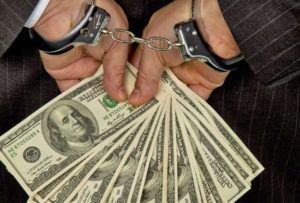Ossining fraudster edges closer to imprisonment for contempt of court
Once again, Ossining fraudster Edward Bronson has claimed financial incapacity to justify not paying more than $12 million to the U.S. Securities and Exchange Commission, and once again a federal judge has been tempted to imprison him for contempt of court.
 If Bronson does not comply with court orders by Dec. 23, U.S. District Judge Kenneth Karas ruled on Nov. 24, the U.S. Marshals Service “may use such force as reasonably necessary to arrest Bronson and take him into custody” and Bronson “shall remain incarcerated until he complies with the orders of this court.”
If Bronson does not comply with court orders by Dec. 23, U.S. District Judge Kenneth Karas ruled on Nov. 24, the U.S. Marshals Service “may use such force as reasonably necessary to arrest Bronson and take him into custody” and Bronson “shall remain incarcerated until he complies with the orders of this court.”
From 2009 to 2011, Bronson targeted small companies in need of capital, according to court records, buying their securities at a steep discount and then quickly selling them at double the trading price.
The SEC sued Bronson, E-Lionheart Associates and Fairhills Capital in 2012 for selling unregistered securities and withholding financial information from investors.
Karas issued a summary judgement in 2017 and ordered Bronson to pay the SEC $12.3 million. For three years, he avoided paying the judgment. At one point, he filed for bankruptcy and claimed he had only $17,250 in assets.
Karas found Bronson in contempt of court, in January and ordered him to produce financial records and negotiate a payment plan with the SEC.
This past summer the SEC argued that Bronson was concealing income, running a company that was registered to his wife, for instance, and working on deals to build a hotel and airport in the Turks and Caicos Islands.
Bronson agreed in July to begin paying $1.1 million a month until the judgment was paid in full.
If he failed to comply, Karas ruled, “Mr. Bronson should not presume he will avoid prison.”
The first payment was late, according to the SEC, and then Bronson stopped paying altogether.
SEC attorney Maureen Peyton King states in a November letter to Karas that Bronson claims he lacks the financial capacity to pay off the court judgment, “yet his filings provided no detail about his purported incapacity.”
Only complete inability to pay, due to poverty or insolvency, may be used as a defense in a civil contempt case, King argued. He must pay what he can, even if doing so diminishes his income and a comfortable standard of living.
But the few financial records Bronson has produced, King stated, indicate that he has not revealed all sources of income.
For instance, bank records for Top Knot Inc., a company he allegedly controls, show hundreds of thousands of dollars flowing in from abroad, and one of his attorneys sent Bronson $630,000 from an escrow account without explaining the source of the funds.
Top Knot bank statements also show exorbitant spending on limousines, the Ritz Carlton, fine dining and high-end retail that King said could be personal expenses for Bronson and his family.
Karas ordered Bronson to surrender his passport, pay $500,000 by Dec. 23 and resume the $1.1 million monthly payments on Jan. 13.